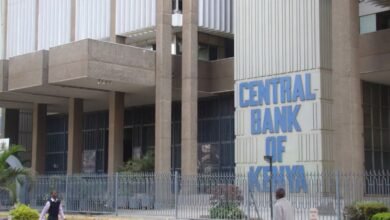
Ethiopia declared a state of emergency on Tuesday and called on its citizens to pick up arms and prepare to defend the capital as rebel forces from the northern region of Tigray pressed south toward the city.
The Tigrayans, who have been fighting the government for the past year, have joined forces with another rebel group as they advance on the capital, Addis Ababa. Foreign officials monitoring the fighting said there were signs that several Ethiopian Army units had collapsed or retreated.
The state of emergency reflected the rapidly changing tide in a metastasizing war that threatens to tear apart Ethiopia, Africa’s second-most populous country.
The Tigray forces and their allies pose a “grave and imminent danger” to the country’s existence, the council’s declaration said. “Everyone will be tested,” the prime minister tweeted, saying the declaration was made to “shorten the period of tribulation and provide a time of solution.”
The U.S. has warned the Tigray forces, who long dominated the national government before Abiy took office, against any attempt to “besiege” the capital, Addis Ababa, after seizing control in recent days of the strategic cities of Dessie and Kombolcha.
Meanwhile, the Addis Ababa security bureau told residents that anyone with a firearm should register it now, and it warned that searches of homes and businesses would be carried out to ensure the city’s peace.
Ethiopia’s prime minister early this week called upon all citizens to combat the approaching Tigray forces, adding that “we should closely follow those who work for the enemy and live amongst us.” A new roundup of ethnic Tigrayans was seen in the capital Monday.
The Tigray forces say they are now linking up with another armed group, the Oromo Liberation Army, with which an alliance was struck earlier this year.
The fighting soon could reach the Oromo region that neighbors Addis Ababa. Ethnic Oromo once hailed Abiy as the country’s first Oromo prime minister, but discontent has since emerged with the jailing of outspoken Oromo leaders.
The U.S. special envoy for the Horn of Africa, Jeffrey Feltman, told a public event Tuesday that the linkup of Tigray forces with other armed groups is dangerous.
Also Read:
- Capital of Ethiopia’s Tigray, hit by air strikes
- Uhuru, UN Secretary General Guterres agree on solution to end Ethiopian crisis
- Kenya, Ethiopia sign deal for Moyale OSBP operation
President Biden, who has threatened to impose sanctions on Ethiopia unless it moves toward peace talks, said Tuesday he would revoke trade privileges for Ethiopia, including duty-free access to the United States because of ‘gross violations of internationally recognized human rights’.
In a separate briefing, Jeffrey Feltman, the Biden administration’s envoy to the Horn of Africa, told reporters that the deepening conflict could have “disastrous consequences” for Ethiopia’s unity and its ties to the United States.
Billene Seyoum, a spokeswoman for Mr. Abiy, did not respond to a request for comment.
Ethiopia’s Ministry of Trade and Regional Integration said in a statement that the decision to revoke trade privileges would reverse economic gains in Ethiopia “and unfairly impact and harm women and children.” Ethiopia is committed to bringing perpetrators of serious rights abuses to justice, it added.
The deteriorating situation in Ethiopia has sent alarm across the region, with fears that the fighting could spill into neighboring countries such as Kenya, or send waves of refugees across borders.
A darling of the West after he won the Nobel Peace Prize in 2019, Mr. Abiy has grown increasingly defensive in the past year as the war spilled out of Tigray, and once-close allies have subjected him to withering criticism.
That criticism has recently focused on Ethiopia’s punishing blockade of Tigray, which has prevented most supplies of food and medicine from reaching a region where the United Nations estimates that 5.2 million people urgently need help and 400,000 are living in famine-like conditions.
After the United States threatened Mr. Abiy’s government with sanctions in September, he accused the West of neocolonial bias and expelled seven senior U.N. officials, including a humanitarian aid coordinator in Tigray.
Last month, the Ethiopian military launched an offensive against Tigrayan forces that expanded to include airstrikes against the region’s besieged capital, Mekelle. In recent days, Mr. Abiy has blamed his losses on unidentified foreigners he says are fighting alongside the Tigrayans.
Human rights groups have also accused Tigrayan fighters of abuses, including the killing of Eritrean refugees, although not on the same scale as Ethiopian troops. The Ethiopian government accused Tigrayan fighters of killing “youth residents” in Kombolcha in recent days, but provided no evidence.
They have been pushing south, into Amhara region, since July, in a grinding battle that has unfolded largely out of sight as a result of internet blackouts and reporting restrictions.
The breakthrough came with the capture this weekend of Dessie and Kombolcha, strategically located towns on a highway running from north to south that has become the spine of a war that could determine the future of Ethiopia.





